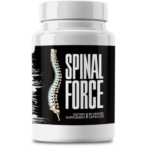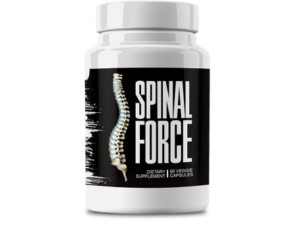This Village-Made Chinese Pain Reliever Eliminates Back And Joint Pain!
What’s the Best Pain Reliever for Joint Pain? Experts Weigh In

What’s the Best Pain Reliever for Joint Pain? Experts Weigh In
If you've ever winced while climbing stairs or struggled to open a jar because of achy joints, you're not alone. Joint pain affects millions, turning simple daily tasks into challenges. Whether it's arthritis, an old injury, or just wear-and-tear, finding relief isn't just about comfort—it's about reclaiming your mobility and quality of life.
Why Do Joints Hurt? Understanding the Root Causes
Before reaching for pain relievers, it helps to know what's causing that stubborn ache. Common culprits include:
- Osteoarthritis – Your joint's natural shock absorbers wearing down over time
- Rheumatoid arthritis – When your immune system mistakenly attacks your joints
- Bursitis – Those fluid-filled cushions around joints getting irritated
- Injuries – From weekend warrior mishaps to old sports injuries that never fully healed
Why Proper Pain Management Matters
Chronic joint pain does more than just hurt—it can steal your sleep, limit your movement, and even affect your mood. That's why finding the right relief strategy is so important. The goal? To reduce inflammation, ease discomfort, and help you stay active.
Over-the-Counter Options: Your First Line of Defense
When joint pain flares up, most of us head straight to the pharmacy aisle. Here's what works—and what to watch out for.
NSAIDs (Ibuprofen, Naproxen): The Double-Edged Sword
The good: These workhorses tackle both pain and inflammation, often bringing quick relief.
The not-so-good: They can be tough on your stomach with regular use, and might not be ideal if you have heart concerns.
Acetaminophen: Gentle but Limited
Tylenol won't reduce swelling, but it can take the edge off mild to moderate pain. Just don't overdo it—your liver will thank you.
Rub-On Relief: Topicals That Actually Work
From icy-hot creams to CBD-infused gels, these targeted treatments can soothe specific areas without the whole-body side effects.
When You Need Bigger Guns: Prescription Solutions
If OTC meds aren't cutting it, your doctor might suggest these stronger options.
Corticosteroids: Fast but Temporary
Whether in pill form or injected right into the joint, these powerful anti-inflammatories work fast—but they're not a long-term solution.
DMARDs and Biologics: For Autoimmune Arthritis
These game-changers can actually slow disease progression in conditions like rheumatoid arthritis, though they require close monitoring.
Opioids: The Last Resort
Reserved for severe, short-term pain because of addiction risks, these are only considered when other options fail.
Nature's Medicine Cabinet: Alternative Approaches
For those who prefer gentler options, these remedies might help take the edge off.
Turmeric and Ginger: Kitchen Cabinet Heroes
That golden latte ingredient? Turns out turmeric's curcumin might rival some NSAIDs for arthritis relief. Ginger's no slouch either.
Glucosamine and Chondroitin: Building Blocks for Joints
The research is mixed, but many swear by these supplements for mild osteoarthritis—especially when taken consistently.
CBD Oil: The New Kid on the Block
Early studies suggest CBD might dial down pain and inflammation without the high, but we're still learning how it works.
Beyond Pills: Lifestyle Tweaks That Make a Difference
Medications work best when paired with these healthy habits.
Move It to Improve It
Swimming, yoga, or even just walking keeps joints lubricated and muscles strong—just what your aching joints need.
Eat to Beat Inflammation
Load up on salmon, berries, and yes, more turmeric. Your joints will thank you for these anti-inflammatory powerhouses.
Lighten the Load
Here's motivation to shed extra pounds: Every pound you lose takes four pounds of pressure off your knees.
Putting It All Together: Your Personal Pain Relief Plan
Finding what works is part science, part trial-and-error.
When to Call the Doctor
If pain sticks around more than two weeks, changes how your joint looks, or comes with fever, it's time for professional help.
The Power of Combination Therapy
Often, the best approach mixes meds with movement and maybe some supplements—whatever keeps you moving comfortably.
Words of Caution
All treatments have trade-offs, so stay informed.
NSAIDs Long-Term: Know the Risks
Regular use can tax your kidneys and stomach—another reason to explore other options for chronic pain.
Natural Doesn't Always Mean Harmless
Even herbs and supplements can interact with meds or affect blood clotting, so always check with your doc first.
The Bottom Line
There's no one-size-fits-all solution for joint pain. What works for your neighbor might not work for you. Start with the gentlest options, be patient with the process, and don't hesitate to ask for help. With the right combination of treatments, you can manage joint pain effectively and keep doing the things you love.
Have you found a particular pain relief strategy that works wonders for your joints? We'd love to hear about your experiences in the comments below!








